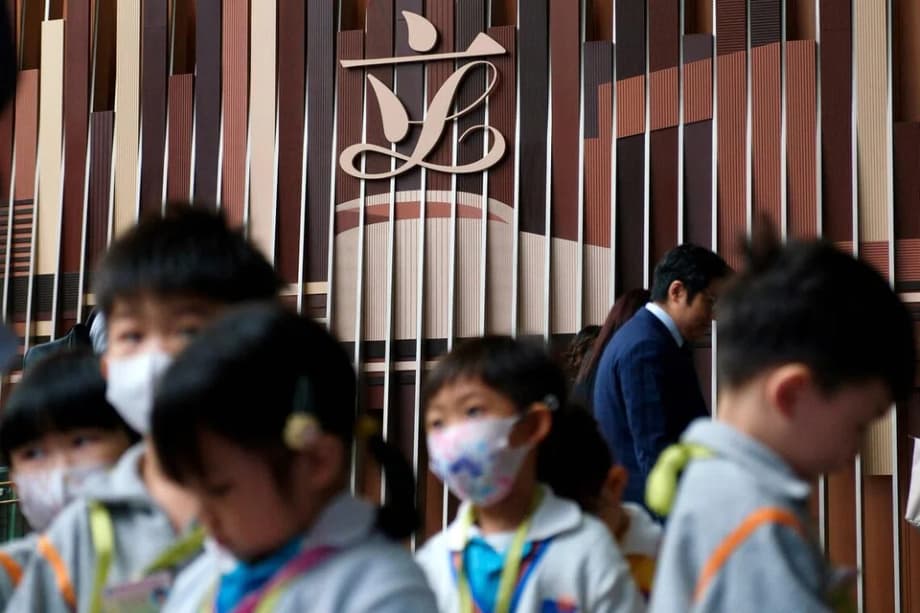A high pressure starting line for families
When Singaporean mother Mrs Lim moved to Hong Kong, she was not expecting to sit through an admissions interview for her 18 month old daughter. The toddler was asked to interact with a teacher, complete simple puzzles and respond to cues. Meanwhile, the parents were asked about their jobs and workplaces. The entire experience felt closer to a recruiting exercise than a routine school tour. For many families, this is the first major test in a city where education can shape life choices from a very young age.
- A high pressure starting line for families
- What really happens in a preschool interview
- Parents under scrutiny
- The coaching economy and curated portfolios
- Why interviews persist even as births fall
- How international and private schools assess young applicants
- Reducing stress for children and parents
- What to ask schools during admissions season
- Highlights
Preschool interviews are common across Hong Kong, especially among private kindergartens and nurseries. Some schools invite toddlers for small group play while staff observe interaction and independence. Others ask children to identify colors, stack blocks or follow instructions. Parents often find themselves in the spotlight too, with schools gauging how families communicate, how they support a child in a new environment and whether their expectations match the school culture.
The pressure has created a thriving industry. Coaching centers and private tutors offer interview practice for babies as young as six months, with fees starting around HK$900 per hour and rising quickly for one to one sessions. The pitch is simple, help your child practice eye contact, learn to follow prompts and stay calm in front of strangers. Critics worry this rewards polished performance over authentic play, favors families with money and sets expectations that do not match child development. Despite a declining birth rate and closures in parts of the school sector, the interview habit persists at popular kindergartens.
What really happens in a preschool interview
Most interviews are not formal, one on one interrogations. Schools often stage a normal play session and observe. A teacher reads a short story and asks a few questions. Children move through activity stations, building towers or sorting objects. Staff notice who listens, who shares, who needs more time and who is curious. It feels like playtime, but it is a structured observation.
Common activities
Tasks vary by school, but many cover basic developmental markers that educators expect in the early years. These may include:
- Listening to a short story and answering simple questions
- Identifying colors, shapes, everyday objects or types of transport
- Pointing to common body parts when asked
- Stacking blocks or completing an easy peg puzzle
- Music and movement to check rhythm, coordination and willingness to join in
- Returning toys or cleaning up at the end of an activity
Language checks are common, especially in schools that teach in English or run bilingual streams in Cantonese and Putonghua. Teachers may ask the child to follow a short instruction, label familiar objects or respond to a greeting. Another key focus is independence. Can the child separate from the caregiver for a short time? Do they try tasks by themselves before seeking help? These are often more relevant than reciting numbers or letters.
What interviewers observe beyond tasks
Teachers are looking for attention span, turn taking, fine motor control, comfort with peers and basic self expression. A child who struggles to answer but shows interest and willingness to try can still be a good fit. Many interviewers accept that toddlers cry or freeze in unfamiliar settings. Staff often give more than one chance and are trained to redirect anxious children with play.
Parents say the experience can still feel jarring when questions seem pitched to older children. Educators who work in Hong Kong kindergartens have argued that academic style drills are not age appropriate and that interviews should emphasize behavior, independence and social readiness. The tone has shifted in some schools toward observation of play and away from rote questions, but expectations vary by campus and by the demand for places in a given year.
Parents under scrutiny
In Hong Kong, the family is part of the assessment. Application forms sometimes ask about a parent’s occupation and employer. During the visit, staff may notice whether a parent dominates the session, answers on behalf of a shy child or becomes combative when things do not go perfectly. Schools want families who support the learning approach and who will partner well with teachers. Some admissions teams will quietly pass over parents viewed as confrontational or unwilling to accept guidance.
How to show you are a supportive family
Experienced admissions staff and early years specialists suggest keeping the focus on the child and making the day feel routine rather than staged. Practical tips shared by Hong Kong educators include:
- Ask the school what will happen so you can explain the process in simple terms to your child
- Arrive a little early, but not so early that your child becomes restless
- Dress smart casual and make sure your child can move freely for play
- Bring only the documents requested, neatly organized
- Ensure your child is well rested and has eaten
- Let the child speak for themselves; do not jump in to answer
- Avoid over coaching; interviewers can spot memorized responses
- Be courteous to staff and other families; your behavior is part of the impression
The coaching economy and curated portfolios
During the pandemic, many schools moved to online interviews or requested video introductions. Production services sprang up overnight. Some families hired videographers, staged introductions on yachts or filmed with trophy displays. Others compiled lengthy portfolios of achievements. Even as face to face sessions returned, a cottage industry carrying the same mentality has endured. The goal is to stand out in a crowd, yet curated videos can reduce the spontaneity that educators want to see.
The equity concern is clear. Private interview classes and glossy presentations give an advantage to families who can afford them. Psychologists warn that when success depends on polishing a toddler’s performance, the process risks selecting privilege rather than potential. Coaching also adds stress for the child and can erode natural play, which is the foundation of learning in the early years.
Some parents are pushing back. They skip interview training and focus on low pressure preparation: practicing greetings, encouraging sharing at the playground, establishing simple routines like putting on shoes or tidying toys and keeping conversations light. Many schools insist they value authentic interaction, and that rehearsed speeches are a red flag.
Why interviews persist even as births fall
The roots of this culture lie in a belief that the earliest entry points influence the rest of a child’s education. Prestigious kindergartens are often linked to popular primary schools, which then connect to respected secondary schools and international universities. Families seek feeder pathways that reduce uncertainty. New kindergartens under international groups are opening with that promise of continuity, and once admitted, children often have a smooth transition into the next stage. For parents, entering at the earliest chance feels like the surest route to a seat later on.
The mindset carries into the government’s Primary One admission process. Central allocation results trigger intense activity every year as parents pursue door knocking quotas at sought after schools. The number of places at the most popular campuses remains tight, and families feel pressure to secure backups quickly. Even when places are available elsewhere, competition for specific brands and locations keeps anxiety high.
At the same time, demographics are changing. Hong Kong’s birth rate has dropped, and emigration has reduced the student population. Some schools have struggled to fill classes. A long standing primary school announced a phased closure due to consistently low admissions and difficulties hiring staff, a sign of the strain caused by fewer children in the system. Education leaders have warned that more closures could follow if the trend continues.
With fewer applicants in some districts, several kindergartens have shifted interviews away from testing academic knowledge. Teachers report a stronger focus on whether children can separate from caregivers, show curiosity and interact kindly. Despite that, competition endures at elite or well located campuses, where demand still outstrips supply.
How international and private schools assess young applicants
International schools known in Hong Kong for their Early Years provision describe admissions that mimic a normal day in class. Some use a carousel of play stations staffed by early childhood teachers who interact as children engage in puzzles, pretend play, and fine motor tasks. Others run small group sessions led by a year group leader to observe social and emotional development. In English medium streams, sufficient English to access the classroom is usually required, especially beyond the youngest level. Admissions leaders often advise families to build comfort with English through fun activities and playdates rather than tutoring.
Private schools also set clear procedures. Malvern College Hong Kong details an application process that includes an online form, document uploads and a payment to schedule an assessment. The school cautions families not to submit glossy portfolios that admissions teams cannot review. On its official admissions page, the school states:
“Do not submit personal portfolios, artwork, photographs, essays, or recordings.”
This reflects a wider view among many kindergartens that staged materials are less useful than seeing how a child engages in real time. The strongest applications are often the simplest: complete forms, truthful information, and a calm child who is ready to play.
Reducing stress for children and parents
The most effective preparation tends to be invisible. Psychologists in Hong Kong encourage parents to manage their own anxiety first because children read adult emotions easily. Frame the visit as a playdate at a new classroom. Keep routines consistent. Choose calm words on interview day and avoid last minute drilling. If a child is nervous, staff are used to comforting toddlers and can adapt the session.
Practical ideas for toddlers include short practice separations with a trusted caregiver, exposure to small playgroups, and building simple self help skills like washing hands, zipping a jacket or putting away toys. Everyday tasks build vocabulary and confidence. Count snacks during grocery shopping, name colors on the bus, describe shapes at the park. For bilingual families, use games and songs to build comfort with both languages the school teaches. Social skills mature at different speeds, and many children hit their stride closer to four to six years old, so patience matters more than perfect performance at age two.
If a child does not perform on the day or is not offered a place, families have options. Some parents choose approaches that de emphasize interviews, such as Montessori style nurseries that focus on self directed work in calm settings. Others look for inquiry based kindergartens that integrate languages and art, sometimes within a continuum that gives priority to a linked primary school. Creative Primary School’s kindergarten, for example, highlights a trilingual team and inquiry projects with a pathway into its affiliated primary. The best fit is the environment where a child is curious, safe and happy to learn.
What to ask schools during admissions season
Good questions help parents find a match rather than chase a brand. Consider asking:
- How do you structure the interview or play session for toddlers, and how do you adapt it if a child is shy or upset?
- What specific language abilities are required at entry, and how do you support newcomers who need time to catch up?
- How do teachers handle separation, and what strategies do you use to ease transitions?
- What is the balance of play, story time, music and early numeracy in the daily routine?
- How do you observe and support social and emotional development?
- Do you assess parents, and if so, what qualities are you looking for in the family school partnership?
- Are there feeder links to primary or secondary education, and how do they work in practice?
- How do you communicate with parents about progress and concerns across the year?
- What provisions are in place for children with emerging learning needs?
- What fees and timelines should families expect from application to result?
Highlights
- Preschool interviews are a common admissions step in Hong Kong for children as young as 18 months
- Sessions look like playtime, with teachers observing listening, sharing, language and independence
- Parents are often assessed on behavior, communication and alignment with the school’s approach
- A coaching market trains babies for interviews, raising fairness concerns and stress
- Families target feeder pathways from kindergarten to primary and secondary to secure continuity
- Despite a falling birth rate and some school closures, popular kindergartens remain competitive
- Some schools have shifted focus away from early academics toward behavior and social readiness
- International schools expect sufficient English for classroom access and prefer natural interaction over rehearsed answers
- Malvern College Hong Kong advises applicants not to submit personal portfolios for admissions
- Low pressure preparation, playful language practice and simple self help skills are the healthiest ways to get ready












